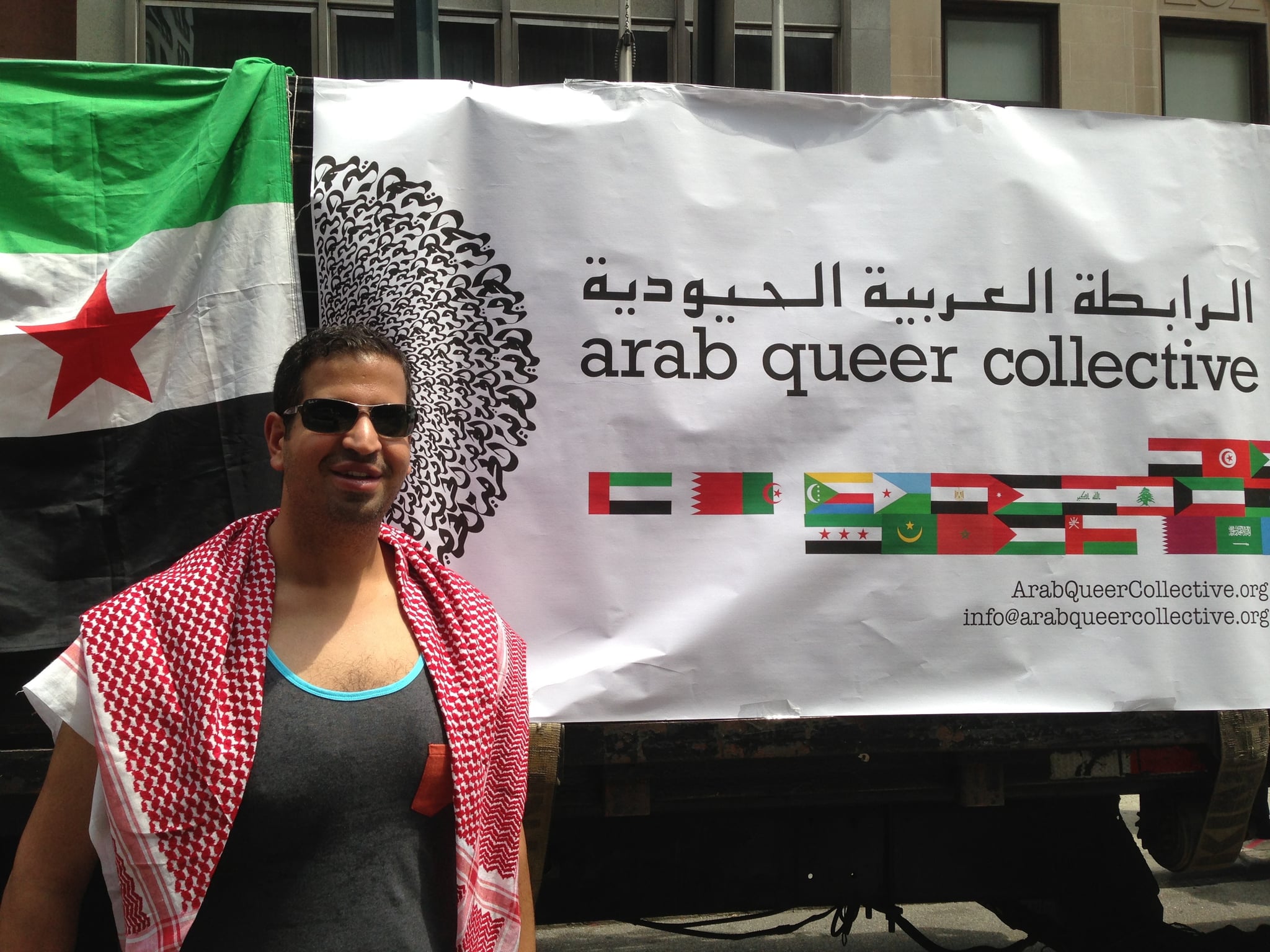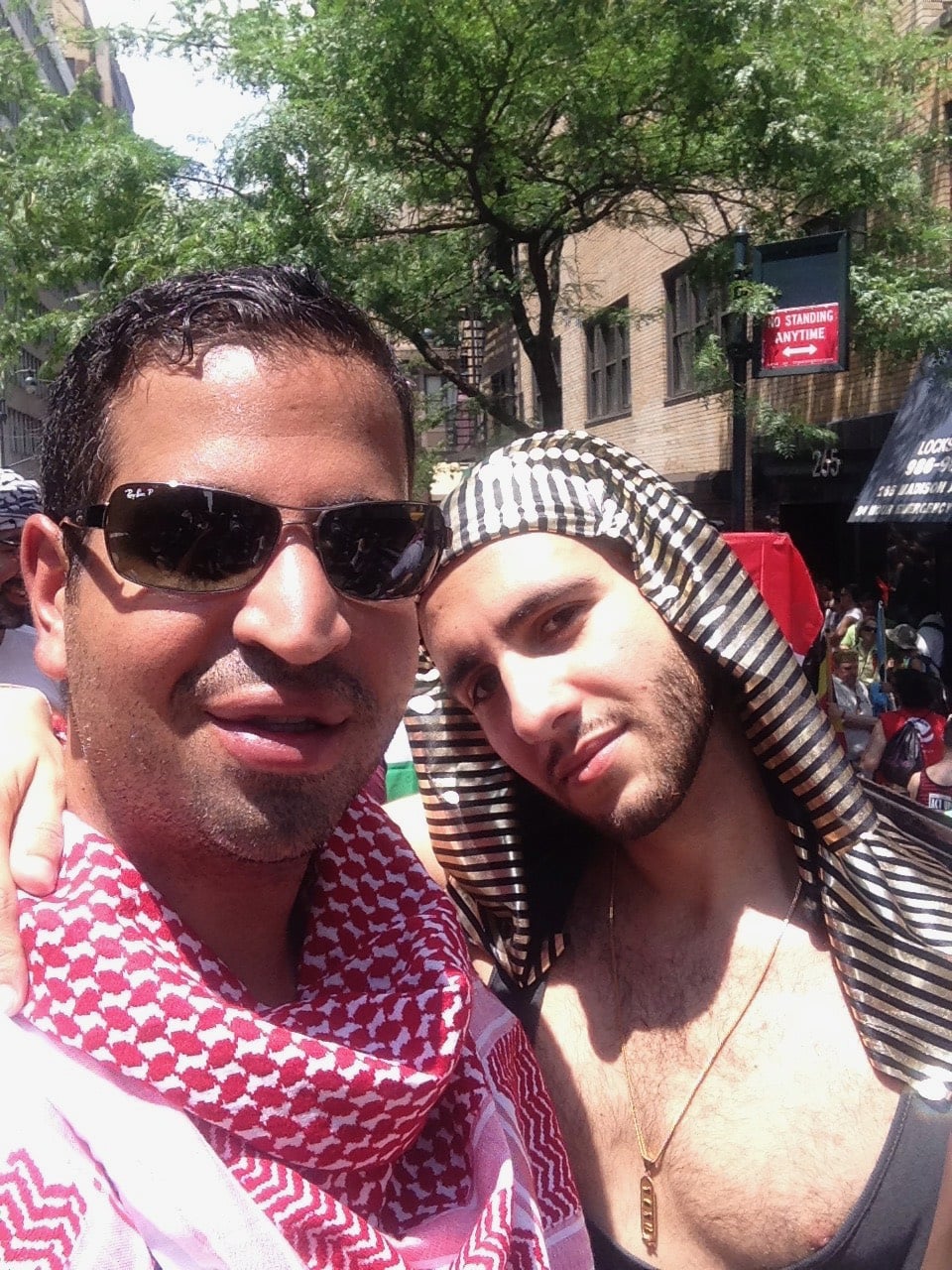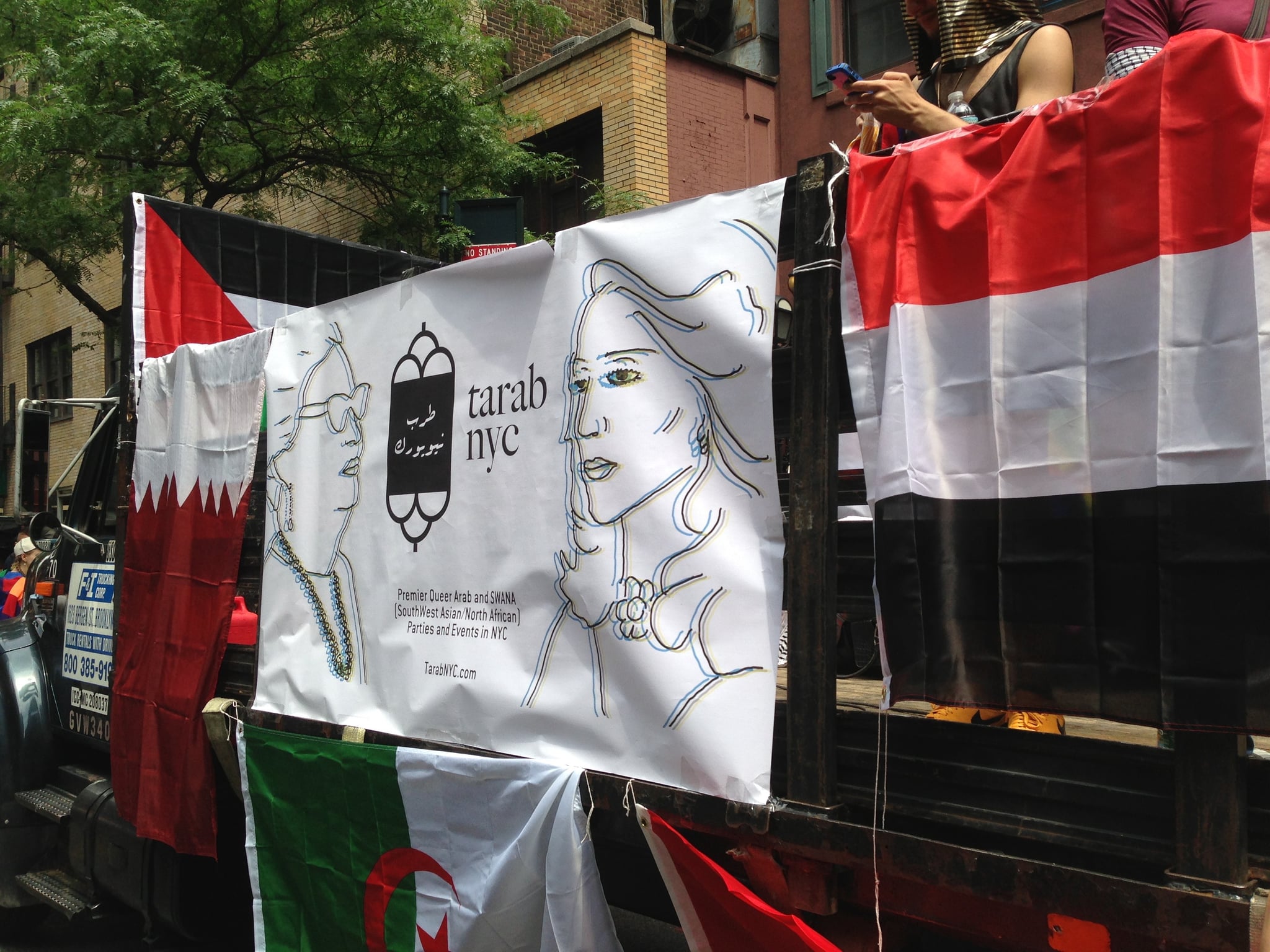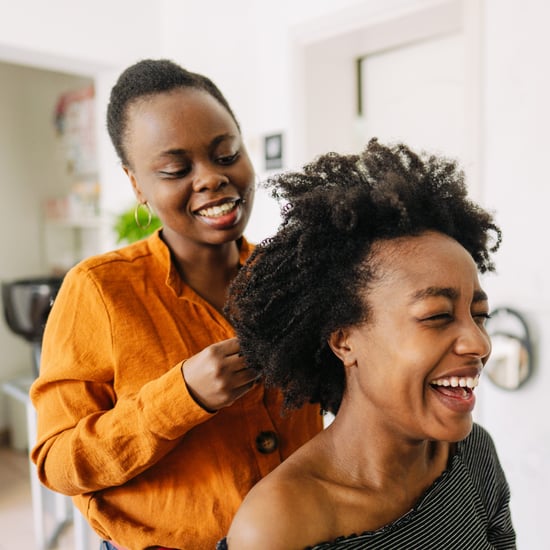Personal Essay on Coming Out as a Gay Arab-American Man
How My Queer Self Met My Arab Self at the Pride Parade
Given how much identity is politicized today, choosing which identities to name is a political act.
I identify as a queer Arab-American Muslim man. I am a first-generation American, born, conceived, and manifested in Los Angeles in the early 1980s, from parents who immigrated to the US from Egypt in the late 1970s. I am a proud West Coaster and I like to identify myself as a Californian. When people look at my brown face, read my unique name, and ask me where I'm from, I enjoy their disappointed looks when I tell them, without batting an eyelash, "California!"

My parents come from the Arab world and, much like other Arab immigrants of their generation, they strove to assimilate into the Western world. They wanted to be taken seriously in their professional lives, so they pushed themselves to speak English to fit in at work and so their children could fit in at school. Arabic, their first language, became the second language spoken in our homes. It was rare that my siblings and I spoke Arabic, and if we did, it was never outside the home.
Who I was as a queer man felt very separate from who I was as an Arab man. There was no crossover. They existed in two separate realms
I knew early on that I was queer. By the time I was 15 years old, I self-identified as a gay man, but I was only out to a few of my close friends — a few close non-Arab, American friends. I never considered telling my parents or any of the other Arabs I grew up with. Having never seen any examples of Arabs who were also queer, I assumed my queerness was a result of my being raised in the US. In my mind, my queerness was a product of my Americanness in no way related to my Arab-ness.
It was always easy for me to compartmentalize my various identities and keep them distinct from each other, without any intersectionality: my Arab identity, as vague as it was, was separate from my queer identity. I kept my Arab and gay communities apart. I had some gay friends, I had some Arab friends, and they never interacted nor intersected.
In my early 20s, after I moved out of my parents' home, I got a job working as a reporter for an LGBTQ+ newsmagazine in Los Angeles. I held the job from 2004 to 2007, and those years proved incredibly valuable in the development of my modern queer American identity. My job was to highlight and celebrate LGBTQ+ people and included interviewing queer celebrities about their efforts to raise awareness and promote equality. One of my favourite interviews was with television personality Carson Kressley, of the original Queer Eye. Kressley was a huge inspiration to me, as I came of age when there were hardly any openly gay men on television. Looking back, I'm a bit embarrassed by how much I gushed over him during that interview. If I was that same young reporter these days, I'd probably gush over modern LGBTQ+ trailblazers like the new Queer Eye's Karamo Brown, Adam Rippon, and Gus Kenworthy.
I recognised that the only reason I felt free to be out was because my queer elders had fought for me.
Every June, I was assigned to cover the LA Pride celebration. I always connected with the history of Pride and relished in hearing the stories of my LGBTQ+ American elders and ancestors. I was inspired by the 1969 riots at New York City's Stonewall Inn and how that monumental event — started by queer and trans people of colour in response to police brutality — sparked the first NYC Pride parade that same year and LA Pride one year later. By the time I left that job, I was a confident and proud queer man. I recognised that the only reason I felt free to be out was because my queer elders fought for me.

Still, who I was as a queer man felt very separate from who I was as an Arab man. There was no crossover. They existed in two separate realms. In my early 30s, I lived in New York City while going to graduate school. It was 2013, and President Obama was still in office. Someone told me about an event hosted by Tarab NYC, which promotes "an inclusive and safe community of lesbian, gay, bisexual, trans, queer, and/or gender non-conforming Arab, Middle Eastern, and/or North African people in the greater New York City area."
It was life-changing. For the first time in my life, I was in a room with other queer folks who looked like me.
It blew my mind that there were spaces dedicated to LGBTQ+ people from the Middle East/North Africa (MENA) region. I suppose it was foolish to think I was the only one, but it honestly never entered my mind that other queer Arabs existed and would want to gather. That's how thick the wall I had built was. I initially hesitated to go to a Tarab event, because I didn't feel very confident in my Arab identity. Would I be able to relate to people at the party? Would there be other Americans there or would most of them be immigrants from their respective MENA countries? What would we talk about? Eventually, I pushed myself to go.
It was life-changing. For the first time in my life, I was in a room with other queer folks who looked like me. I met other gay Egyptian men, gay men from Lebanon and Syria, lesbians from Yemen and Iraq, trans Palestinians, genderqueer Iranians, all sorts of MENA folks on the queer spectrum.

That same year, Tarab NYC decided to sponsor a float in the NYC Pride Parade. It would be the first time an organised group of Arabs would walk in the parade in a decade, since the now-defunct Gay and Lesbian Arab Society (GLAS) hosted a float in 2003. I jumped at the opportunity to participate. Marching in a parade down Fifth Avenue in Manhattan that culminated in front of the iconic Stonewall Inn felt like a queer rite of passage. For someone like me, who never had a queer Arab community around them, to be in this parade as a gay Arab-American man with other LGBTQ+ Arabs around me was a fantasy I could not pass up.
I was indeed one of the only Americans in the group. Most of the people were born and raised in countries across the Middle East and North Africa — countries where Pride parades don't exist, where queer people are not allowed to walk around in public draped in rainbow flags, holding hands, and professing their love and desire for each other. In many of their home countries — and in the home country of my parents — they would be jailed or worse if they ever named themselves as queer.
In that moment, I recognised how grateful I am to be an Arab-American and that the country I call home has Pride parades in every major city. That people like me have the freedom to take to the streets and celebrate who we are. That we can celebrate all the different parts that make up our identities — even the parts that we never thought would mix.






